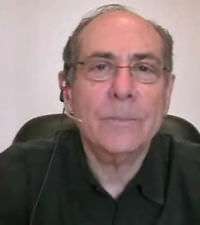Meet Robert Lipsyte, A Pro-Steroid Sportswriter and ESPN's New Ombudsman

Chances are you've read something by Robert Lipsyte, the revered sportswriter, novelist, and cancer memoirist, even if you have no idea who he is.
His 1967 young adult novel about a black kid with hopes of becoming a boxing champeen, The Contender, quickly became a widely assigned book in junior highs around the country and introduced generations of kids to vodka-soaked fruit. He co-wrote Dick Gregory's searing 1964 autobiograhy Nigger, which opens with an archetypal "black rage" set piece that is the equal of anything written Richard Wright or even Frederick Douglass (Lipsyte's role in Nigger and other works about the experiences of African Americans led me to start wondering if one of the greatest living black authors of the 20th century wasn't a Jewish white guy from Rego Park, Queens). His early appreciation of Muhammad Ali as a cultural change agent whose influence ranged far beyond sport (summarized here) is representative of his thoughtfulness and insight (as is his 1966 book, The Masculine Mystique). His account of dealing with testicular cancer, In the Country of Illness, stands out in a crowded field of tomes covering similar experiences.
In June, Lipsyte will become the ombudsman for ESPN, the cable sports channel that's done more than its share to de-sacralize not just sports coverage but broadcasting and news-gathering in general. His appointment is fully in keeping with an organization that was never about good, old-fashioned jock sniffing, which is what 99 percent of sportswriting still tends to be: a virtually uncritical, at-face-value take on one of the most fascinating and exploitative markets in human flesh imaginable (years ago, in an ESPN debate about paying college athletes, he asked, "explain to me…why the players, the unpaid professionals, shouldn't get an honest, over-the table piece of their own action?"). Long before it became accepted or even tolerated to seriously interrogate the industry you cover, Lipsyte was on the beat asking tough questions about a sports culture that simultaneously mythologized "the level playing field" while stacking the deck in an infinite number of ways. It's fair to say that without him, ESPN wouldn't have been possible, much less newer outfits such as Deadspin, which blend a fan's intense, insane devotion with an unflinching critical apparatus.
Lipsyte is one of the journalists who has made all of us better, both as writers and readers. As he told The Nation, his job at ESPN will include "happily wading through the e-mail bag to find out what that audience is concerned about, complaining about, loving, questioning. Then I will try to explain the background of what happened, demystify the process (through reporting) and offer my take. Transparency. ESPN is the world's great window on sports. I'm the window washer."
Here's a taste of Lipsyte, writing about Lance Armstrong:
Lance Armstrong…has done more good than harm in his life but should be penalized for breaking the rules for which he signed up.
There is something faintly sinister about the Anti-Dope Party, whether it's campaigning through cycling, the Olympics, baseball, or football (where it seems to have pretty much decided to fail). Wasting funds, energy, and the attention of citizens, the anti-dopers generally stay a half-life behind the dopers, who are driven to keep giving us the bigger, faster, more spectacularly vicious thrills we demand. By now, even fantasy leaguers understand that performance-enhancing techniques don't promise success, only the chance to heal faster from harder and more frequent workouts.
As one who shoots steroids (a result of three cancer operations, a la Lance), I still can't crush a fastball, much less ride up mountains at speed….But I do understand what doping can do, and done carefully it can be useful. In American sports, it has been generally available at least since the early Sixties. The promised reefer madness trail of death and twisted lives has never materialized, and certainly not on a scale of the damage caused by the conventionally encouraged violence of football.
Don't cry for Lance Armstrong. That bully can take care of himself. Watch out for the righteous, wrong-headed anti-dopers, distracting us from more immediate and perilous concerns. Pedal hard. Take responsibility for yourself and be brave.


Show Comments (25)